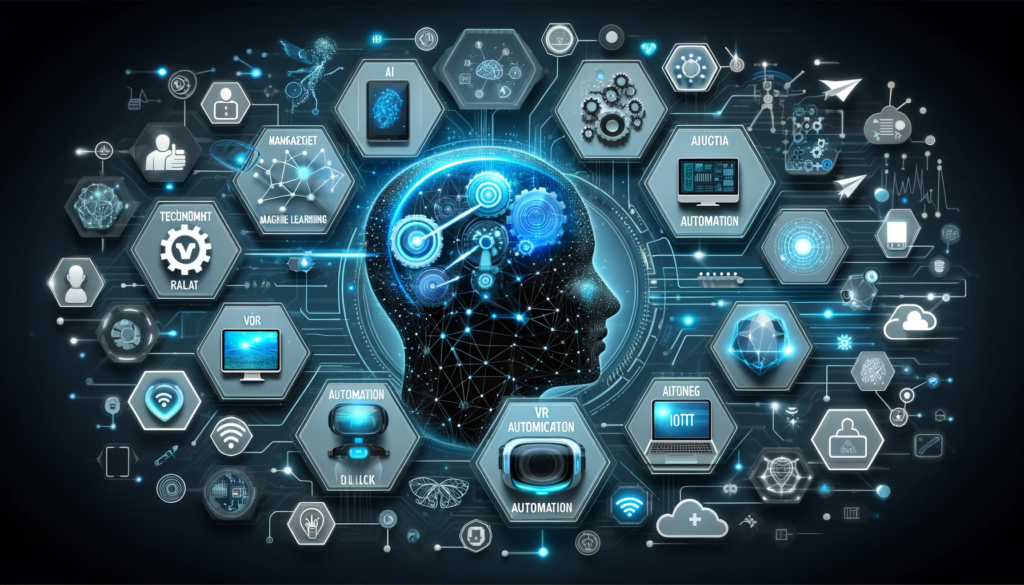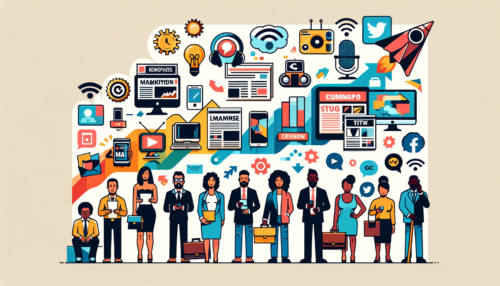The world of marketing has undergone a seismic shift over the decades, transitioning from traditional mediums to a digital-centric approach. This evolution, driven by technological advancements, has not only changed how businesses reach their audiences but also reshaped the very fabric of marketing strategies.
In the early days, marketing strategies were predominantly focused on traditional media such as print, radio, and television. This era was characterized by mass marketing techniques, aiming to reach as wide an audience as possible. Iconic campaigns from brands like Coca-Cola and Nike left indelible marks on the consumer psyche, showcasing the power of traditional marketing. However, these methods offered limited interaction with the audience and were often expensive, making it challenging for smaller businesses to compete.
The Digital Revolution
The advent of the internet marked the beginning of the digital revolution in marketing. This era witnessed a paradigm shift from broad-reaching strategies to more targeted and interactive methods. Digital marketing, encompassing search engine optimization (SEO), social media, and email marketing, allowed businesses to reach their audience more efficiently and at a lower cost. The rise of platforms like Facebook, Twitter, and Instagram further amplified this shift, enabling brands to engage directly with consumers in real-time.
Data-Driven Marketing
Perhaps the most significant evolution in modern marketing is the advent of data analytics. By harnessing the power of big data, businesses can now tailor their marketing strategies to the preferences and behaviors of their audience. Personalization and targeted advertising have become the cornerstones of effective marketing campaigns, with tools like Google Analytics and Facebook Insights providing invaluable insights into consumer behavior. This data-driven approach has not only enhanced the efficiency of marketing campaigns but also improved the overall customer experience.
Integration of Technology in Marketing
The integration of advanced technologies like artificial intelligence (AI), machine learning, and automation has further revolutionized marketing strategies. AI-powered chatbots, personalized product recommendations, and automated email campaigns are just a few examples of how technology is being leveraged to enhance marketing efforts. These innovations allow for more personalized, efficient, and effective marketing strategies, giving businesses an edge in a highly competitive market.

The Future of Marketing
As we look to the future, emerging technologies like virtual reality (VR), augmented reality (AR), and the Internet of Things (IoT) are set to further transform the marketing landscape. These technologies offer new and immersive ways for brands to engage with their customers, creating experiences that were once unimaginable. To stay ahead of the curve, businesses must remain adaptable and open to embracing these new technologies as part of their marketing strategies.
Wrap Up
The journey of marketing strategies from traditional to digital and now to data-driven and technologically integrated approaches illustrates a dynamic and ever-evolving field. Businesses that adapt to these changes and embrace the potential of technology in their marketing efforts are more likely to succeed in this digital age.
In a world where marketing strategies are continually evolving, staying informed and adaptable is key. Whether you’re a seasoned marketing professional or a business owner navigating these changes, embracing new technologies and strategies is essential. We invite you to delve deeper into the world of digital and data-driven marketing to discover how you can leverage these tools for your business’s success.
